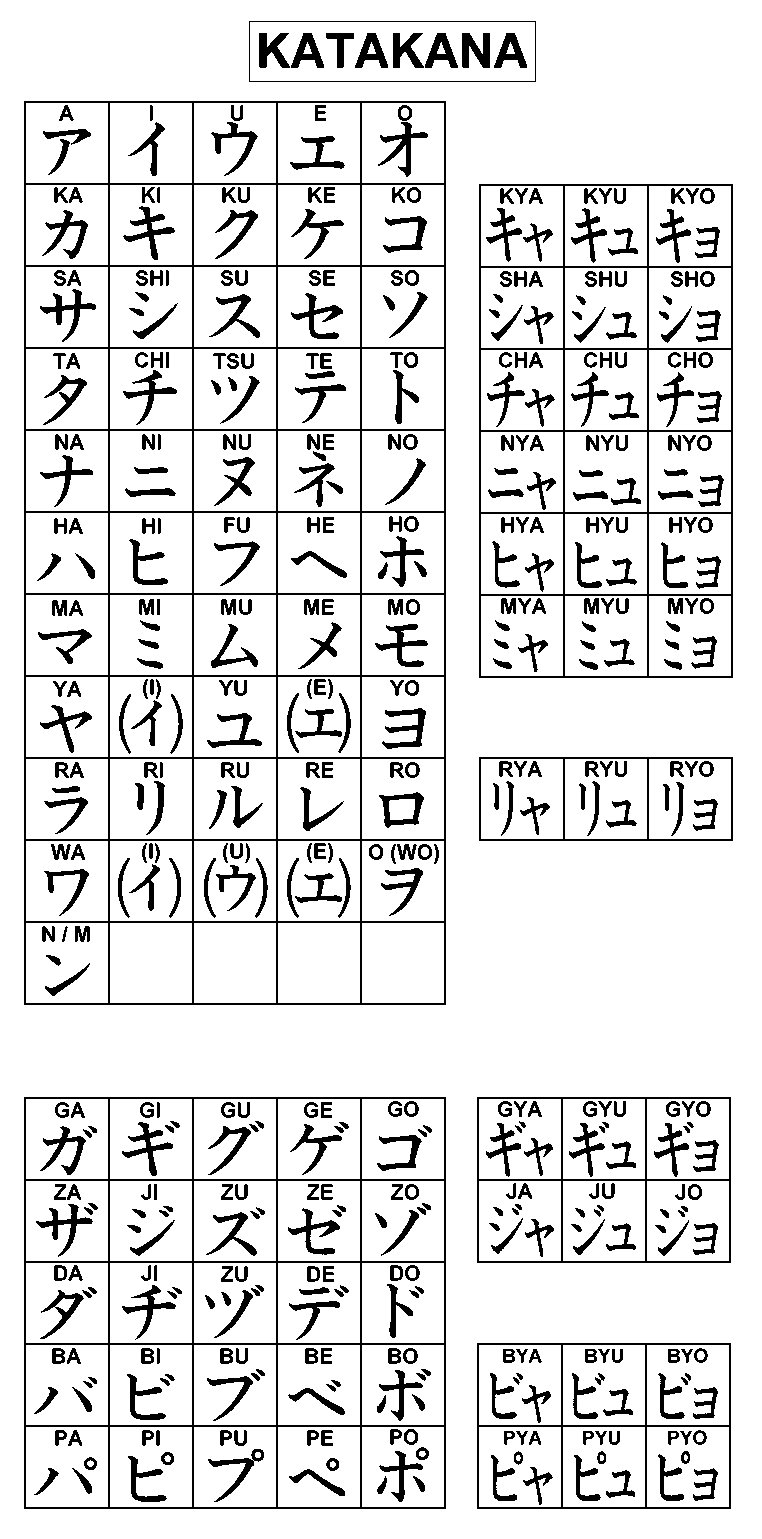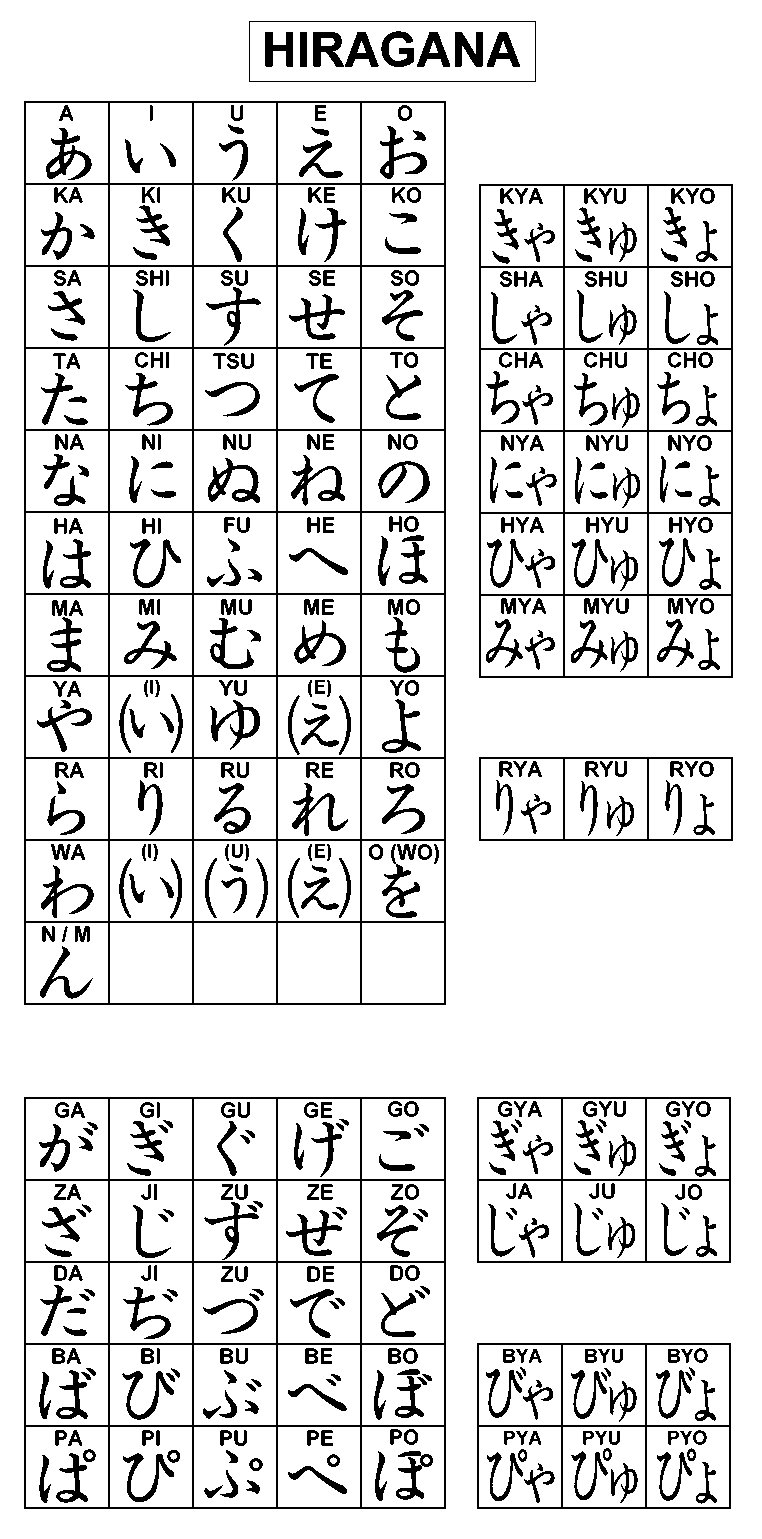This is a brief introduction to understanding Japanese script - for further information consult your search engine!. Learning to read and write Japanese is quite difficult, but in my opinion its more fun and rewarding than other languages.
Much like Chinese, there is no straightforward alphabet. Instead there are four written Japanese scripts. The first is Kanjii, a very complicated set of symbols derived from Chinese. This is by far the hardest to learn (I believe the educational requirement in Japan is for children to know at least 3000-4000 of them). This script is used to convey meaning. The next is Katakana is a much smaller set of symbols used for spelling foreign words - this is the easiest to learn. Hiragana is another small set of symbols, similar to Katakana but is instead used for giving Kanjii more meaning. Finally there is Romaji which you have no doubt come across - this is simply Japanese words written in English (like above).
Below are the Katakana and Hiragana tables for you to download and look at. If you happen to see Japanese written using either of these scripts, try translating it into Romaji and then running the result through a web based translator!!

